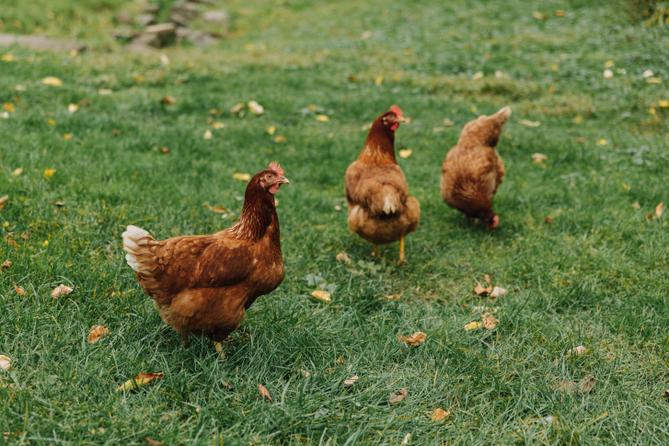BELLEFONTE — The Shapiro administration is proposing a $25 million cut to a state bird flu recovery program, arguing that its $61.5 million reserve is enough to aid Pennsylvania farmers affected by the aggressive virus.
But the move has sparked concern among some Republican lawmakers who fear the state won’t be prepared to respond to a surge in cases.
The reduction — part of Democratic Gov. Josh Shapiro’s $51.4 billion budget pitch — targets the Department of Agriculture’s special grant program, which has reimbursed farmers for losses caused by highly pathogenic avian influenza and funded biosecurity measures to quell cases.
The program, created under the Wolf administration, has received $75 million from lawmakers over the past three years. So far, $13.5 million has gone to 211 applicants.
In 2025, bird flu has been detected at commercial farms in Cumberland, Dauphin, Franklin, Lancaster, Lebanon, and Lehigh Counties. Over the past month, more than 20,000 birds have been affected by the virus in Pennsylvania, according to the most recent federal data.
Alongside reimbursing farmers for their losses caused by the virus, Pennsylvania also spends money on staffing and other costs related to surveillance and response.
Pennsylvania’s current avian influenza outbreak began in 2022, and has cost taxpayers more than $9.8 million for salaries, overtime, travel, equipment, and other expenses, according to records from the state Department of Agriculture. Federal reimbursements totaled $4.6 million between April 2022 and April 2024 to help offset some of those costs.
By March 2023, Pennsylvania reported the most cases among all commercial birds and backyard flocks nationwide, but those numbers went down by that August. Still, the state prioritized spending — such as a $6 million to add a fourth lab to Pennsylvania’s animal diagnostic system in last year’s budget — and implemented mandatory milk testing to monitor cows for the virus.
In February, Pennsylvania eliminated a citizenship requirement for certified poultry farmers, which are professionals who can test birds for disease on farms. Legislators said advocacy by poultry farmers and the agriculture department made the law possible, and hope that letting more people test helps curb the spread.
The Shapiro administration has cited the proactive investments to justify not adding $25 million to the avian influenza recovery fund in the proposed budget. The agriculture department wants to reroute most of those dollars to other needs, such as using $15 million for agriculture innovation grants and $8 million for food assistance programs.
Recovery grant dollars come from the agriculture department’s rapid response account, which has previously received $34 million annually from lawmakers. Under the governor’s proposed spending plan, the account would receive only $11 million — including $6 million for bird flu testing, $2 million for the new lab, and $3 million for spotted lanternfly needs.
Though insistent the $61.5 million reserve is enough, Shapiro has asked lawmakers for flexibility if additional dollars are necessary to meet future bird flu needs.
“We’ve got the testing capacity. We’ve got the labs and the infrastructure, the stakeholders, the federal support, and the reserve fund,” Secretary of Agriculture Russell Redding said during a state Senate budget hearing last month. “So, I feel pretty comfortable with where we are.”
Despite confidence from the Shapiro administration, GOP lawmakers are skeptical.
State Rep. Ann Flood (R., Northampton) said during a February budget hearing that she was “stunned at the willful redirection” of avian influenza funds, especially as Pennsylvania saw an uptick in positive cases.
State Sen. Scott Martin (R., Lancaster) questioned how the administration’s budget’s reallocation of bird flu recovery dollars reflects a commitment to supporting the agriculture sector amid the outbreak during the department’s Senate hearing on the spending plan.
“Something’s just not adding up with how we’re looking at this and what we’re seeing on the ground,” said Martin, who chairs the state Senate Appropriations Committee.
While avian influenza is the most pressing concern for the agricultural sector, helping farms grow and feeding people are also top priorities, Redding testified. “Ultimately, we’re in a food business,” he told Senate lawmakers.
Martin, however, isn’t swayed by the administration’s argument.
He told Spotlight PA that Pennsylvania isn’t yet equipped to swiftly respond to avian influenza, adding that the state has been “teetering with having another very bad situation.” Rerouting those dollars, he said, might not be “a very wise thing to do.”
Chris Pierce, president of Heritage Poultry Management Services, said the recovery fund has been a “saving grace” for farmers he works with but feels confident that policymakers would find a solution if needs exceed the state’s reserve.
“For me, as a farmer, I want to ensure that the support and the needs would be able to be provided in a worst-case scenario,” he told Spotlight PA.
While the funding reduction might not look good on a summary sheet, Chris Herr, executive vice president of PennAg Industries Association, told Spotlight PA that the state’s reserve still puts Pennsylvania in decent shape for response.
Still, the agribusiness trade group plans to discuss the proposal with policymakers, he said.
Herr said he’s not sure whether Shapiro’s budget pitch is where he wants the funding to end up.
“But it shouldn’t be a red mark on Gov. Shapiro just because that looks different than it did last year,” he said.
